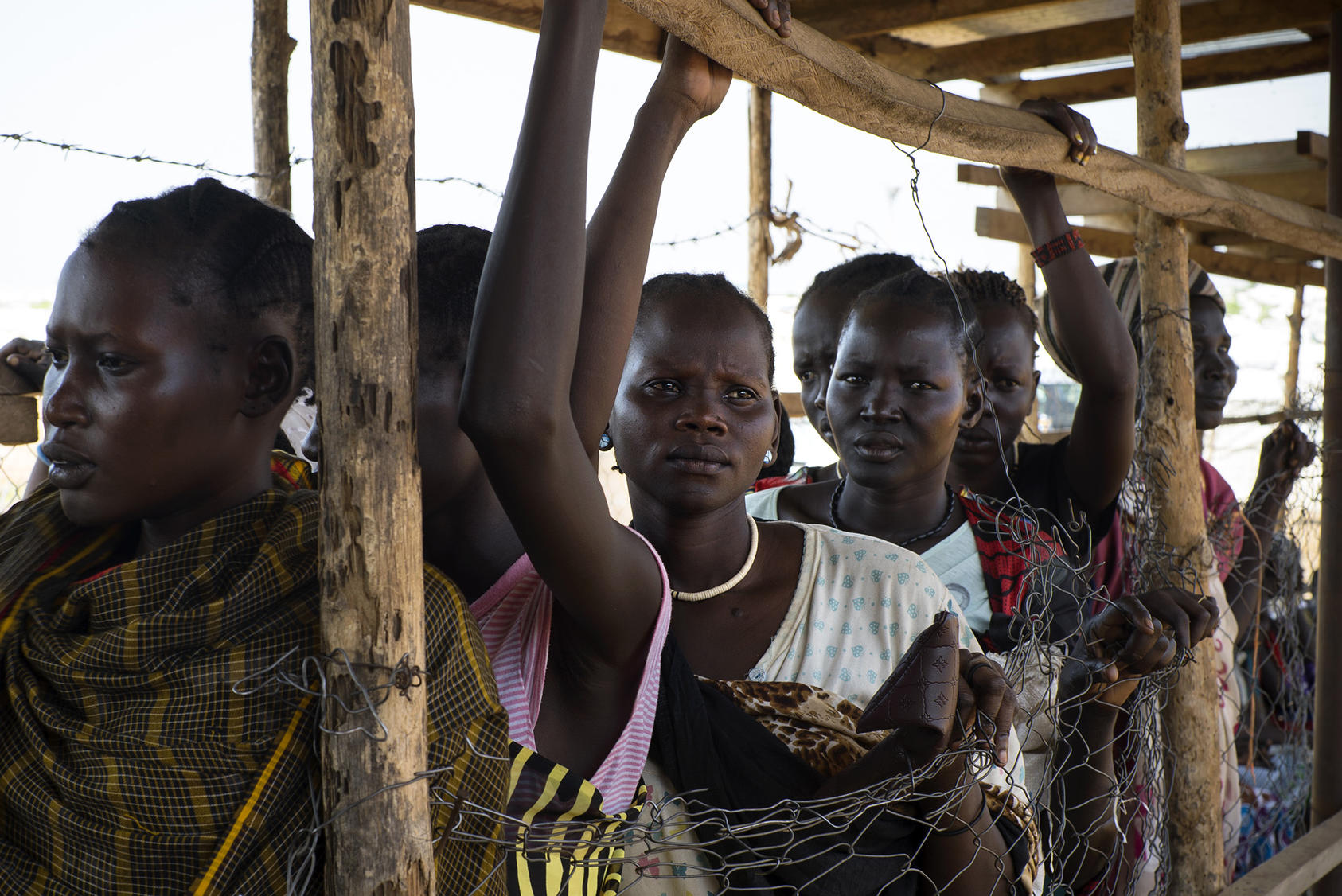The irony is stark. Just as U.N. bodies, NGOs and civil society groups started to “Orange the World” in November with activities to mark “16 Days of Activism Against Gender-Based Violence,” in South Sudan, young men dressed in civilian and military clothing attacked and raped an estimated 150 women and girls. The attack, whose victims included children and the elderly, occurred as the victims headed to a food distribution site in the north of the country near Bentiu in the former Unity state.

It was not an isolated incident in the area.
After visiting Bentiu, Human Rights Watch reported that the assault, which followed the September 12 peace agreement in the country’s civil war, was part “of a pattern of attacks on women and girls traveling to and from town.” The U.N. Mission in South Sudan (UNMISS) together with the Office of the High Commissioner for Human Rights (OHCHR) reaffirmed that finding in a February 15 report, detailing 134 cases of rape and gang rape and 41 cases of other forms of violence against women and girls in the area between September and December 2018.
Nor was it anything new to South Sudan.
In July, a U.N. report detailed how government forces and allied militias had raped and gang raped 120 women and girls between April and May in the former Unity state. Another U.N. report in October cited the armed opposition as responsible for rape and sexual slavery that started in April in the former Western Equatoria state. In February 2017, rampaging government soldiers outside Juba, the capital, raped women and girls at gunpoint. The Ceasefire and Transitional Security Arrangements Monitoring Mechanism identified 154 cases of sexual and gender-based violence in Juba between February and December 2017.
Foreigners are not immune to the violence, either.
Government soldiers assaulted foreign aid workers at the Terrain hotel complex in Juba after clashes broke out with armed opposition forces in July 2016—violence that spawned more than 200 allegations of rape including the foreigners. Before that, between May and December 2015, humanitarian organizations estimated that 1,430 civilians were raped and another 1,630 abducted during a military offensive on Leer, Koch and Mayendit, again in the former Unity state.
The list goes on.
Ending Impunity
What the recent, post-peace deal incident in Bentiu shows is how deeply rooted violence against women and girls is in South Sudan. It also demonstrates the critical importance of securing justice to end the country’s sexual and gender-based violence. As the recent UNMISS-OHCHR report concluded, the attacks around Bentiu were at least in part driven by the “prevailing culture of impunity.” Holding perpetrators to account is one of the principle ways to interrupt the cyclical relationship between impunity and continued abuse.
Thus far, though, there has been little accountability. Rather, it appears that soldiers and allied militias have carte blanche to commit all manner of offenses, including sexual violence. South Sudan’s dire economic crisis appears to have exacerbated the violence, with armed actors reportedly being paid with “what they loot and the women they abduct,” as one journalist put it.
While a military tribunal in September sentenced 10 soldiers to prison in the rape of international aid workers—a development heralded as a step toward accountability—many wonder whether any justice for South Sudanese victims will follow those prosecutions.
Since the attacks in Bentiu, the U.N. called for accountability in crimes of sexual violence and pointed to the crucial role that delivering justice will play in ensuring lasting peace and stability in the country. Human Rights Watch echoed this call, urging the government to conduct investigations and “provide protection and services to survivors.” Unfortunately, despite the formation of a commission of inquiry to investigate what happened in Bentiu, the government has denied that there is any evidence the rapes and gang rapes even occurred.
Creating Accountability
At this point, it appears that outside pressure might be the best spur to advance the investigation, adjudication and punishment of sexual violence in South Sudan’s conflict. Shortly after the mass rape near Bentiu came to light at the end of November, Legal Action Worldwide, a non-governmental organization, filed a landmark case against the Government of South Sudan at the U.N. Committee on the Elimination of All Forms of Discrimination Against Women in Geneva. The complaint accuses the government soldiers of committing acts of sexual violence against 30 South Sudanese women and girls.
The African Union, the United States and others are also pressing South Sudan’s government to take advantage of the revitalized peace agreement to establish the Hybrid Court for South Sudan called for in the accord, which is designed to try international war crimes committed in the conflict, including crimes of sexual violence. So far, the government of South Sudan has dragged its feet on the plan, with top-level officials appearing to show little appetite to impose accountability for human rights violations.
The momentum needs to continue. Rather than denying the realities of widespread sexual violence, the government should show that it is serious about tackling the kinds of sexual and gender-based crimes that women and girls have experienced regularly throughout the conflict. South Sudan’s leaders must commit to “Make Peace Count” for their country’s women and girls, turning the national slogan for last year’s “16 days” into a reality.
Alicia Luedke is a researcher working in South Sudan, specializing in issues relating to gender and sexual violence.



